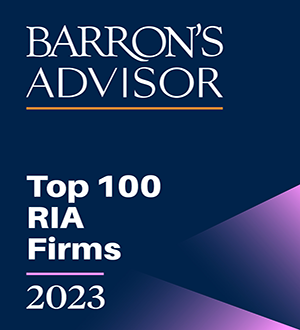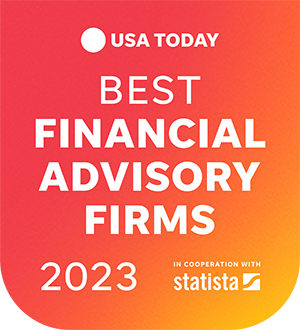Investment Outlook Winter 2023
By Argent Wealth Management, LLC on January 10, 2024
The Bull Market Continues: What to Expect
Fourth Quarter Review, First Quarter 2024 Outlook:
Argent’s 2023 quarterly updates and monthly Market View publication were both bullish throughout 2023. And returns were positive for most major asset classes in 2023.
Bitcoin was up over 250%. QQQ, or the Nasdaq 100, outperformed most major indices, including the Dow Jones (DJIA). Small Cap Stocks (IWM) ended the year strong after being slightly negative at the end of October. Bonds, as represented by the iShares Core U.S. Aggregate Bond ETF (AGG), ended positively as interest rates came down in the fourth quarter (bond prices move inversely to yields).

Outlook for 2024
The bull market is more likely to continue than end in 2024 for two main reasons. First, economic indicators suggest that a soft landing, in which the Federal Reserve’s policies lower inflation while the economy avoids a recession, is more likely than a hard landing, where the Fed lowers inflation while the economy encounters a recession. Second, the interest rate hiking cycle is likely over, and this tends to be positive for both stocks and bonds.
There are numerous economic charts that indicate a recession is unlikely. Here are three.
First, the Consumer Price Index (CPI) is on a downward trajectory. Shelter increased 6.5% yearover- year (YOY) and accounted for about 70% of the increase in Core CPI (CPI excluding Food and Energy, which tend to be more volatile categories). Shelter, of which home prices are a large component, is the area impacting inflation the most. When home values increase for Americans, they are more likely to spend money on home improvements and elective purchases than they would be if their home value was stagnant or decreasing.

Second, credit conditions remain healthy. Ned Davis Research’s Credit Conditions Index is comprised of spread (how much do consumer or business loans yield over U.S. Treasury yields), delinquency rates (what percentage of consumers and businesses are delinquent on payments), debt service (what percent of household
and business income is going to service debt), debt capacity (how much more capacity do businesses and consumers have to take on more debt), and lending standards (how easy or hard is it to get a loan).

Despite higher interest rates, the availability of credit is favorable. It is available to expand your business, buy a house, improve your home, or purchase a car. Credit conditions are improving. If a recession were imminent, credit conditions would worsen.
Lastly, consumers are in good health. Consumption is about 70% of U.S. GDP (Gross Domestic Product, a way to measure aggregate demand in the economy). Household debt service ratios are “low.” According to this NDR chart, when “low”, the gain per annum in real (after accounting for inflation) GDP is 2.6%/year.

A downward trajectory in inflation, more productivity, favorable credit conditions, and low consumer debt service imply that a soft landing is more likely than a hard landing.
The Fed and Yields
Investors are now pricing in the expectation that the Fed is likely to cut rates in March of 2024.

Investors may be in a win-win situation. If economic indicators trend downward faster than expected, then it is likely that inflation would also recede. In this situation, investors can expect the Fed to lower rates faster than markets anticipate. This would support both bond and stock prices. If inflation remains elevated, due to a resilient economy, which given the economic indicators is more likely than the former scenario, the Fed may keep rates in the 5.25-5.5% range longer than is currently expected. Since this scenario would be caused by economic strength, the odds of a recession in 2024 would remain low. Therefore, the chances of anything beyond a pullback in stock and bond market prices, to adjust for changed interest rate expectations from the Fed, would be unlikely.
With the Fed tightening cycle likely over, yields have likely peaked. They are already down meaningfully over the last month.

History of Bull Markets, What to Do
If the bull market does in fact continue, what could it look like for investors?
The mean return for the Dow Jones Industrial Average for all bull markets is an 85.9% gain over 576 days. The Dow Jones is up about 25% over the last 300 trading days (there are 252 trading days a year). Historically, cyclical bull markets within secular bull markets last on average for 751 days and return 105%. We remain in a secular bull market that started in March of 2009.

The weight of the evidence suggests that the bull market will continue. Investors should consider this when looking at their target asset allocation. Investors may consider an overweight to stocks within the tolerance bands they have set within their plan.
Sign up to receive more information about Argent's Services and Solutions.
Argent Wealth Management, LLC is a group comprised of investment professionals registered with Hightower Advisors, LLC, an SEC registered investment adviser. Some investment professionals may also be registered with Hightower Securities, LLC (member FINRA and SIPC). Advisory services are offered through Hightower Advisors, LLC. Securities are offered through Hightower Securities, LLC.
This is not an offer to buy or sell securities, nor should anything contained herein be construed as a recommendation or advice of any kind. Consult with an appropriately credentialed professional before making any financial, investment, tax or legal decision. No investment process is free of risk, and there is no guarantee that any investment process or investment opportunities will be profitable or suitable for all investors. Past performance is neither indicative nor a guarantee of future results. You cannot invest directly in an index.
These materials were created for informational purposes only; the opinions and positions stated are those of the author(s) and are not necessarily the official opinion or position of Hightower Advisors, LLC or its affiliates (“Hightower”). Any examples used are for illustrative purposes only and based on generic assumptions. All data or other information referenced is from sources believed to be reliable but not independently verified. Information provided is as of the date referenced and is subject to change without notice. Hightower assumes no liability for any action made or taken in reliance on or relating in any way to this information. Hightower makes no representations or warranties, express or implied, as to the accuracy or completeness of the information, for statements or errors or omissions, or results obtained from the use of this information. References to any person, organization, or the inclusion of external hyperlinks does not constitute endorsement (or guarantee of accuracy or safety) by Hightower of any such person, organization or linked website or the information, products or services contained therein.
Click here for definitions of and disclosures specific to commonly used terms.



